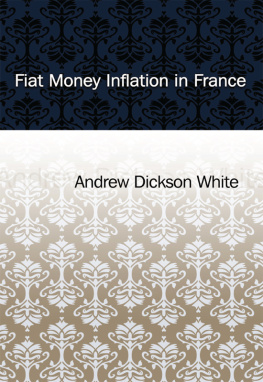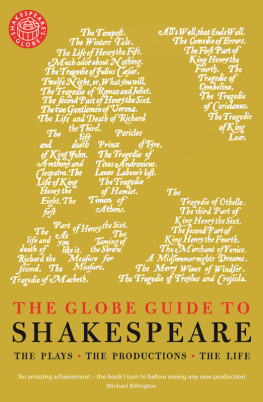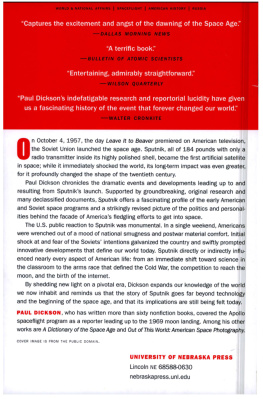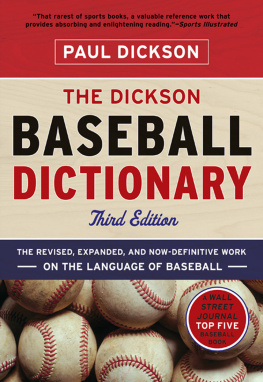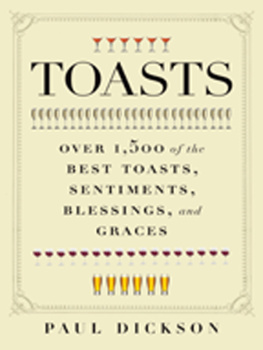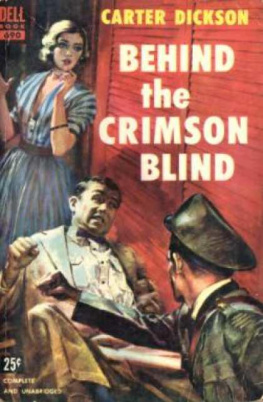Shrine of Knowledge
Shrine of Knowledge 2020
A publishing centre dectated to publishing of human treasures.
All rights reserved. No part of this publication may be reproduced, stored in a retrieval system, or transmitted in any form or by any means without the prior written consent of the succession or as expressly permitted by law or under the conditions agreed with the person concerned. copy rights organization. Requests for reproduction outside the above scope must be sent to the Rights Department, Shrine of Knowledge, at the address above.
ISBN 10: 599893680
ISBN 13: 9780599893689
This collection includes the following:
History of the Warfare of Science with Theology in Christendom
The Most Bitter Foe of Nations, and the Way to Its Permanent Overthrow
Fiat Money Inflation in France
Encyclopaedia Britannica, 11th Edition, Volume 16, Slice 2
The Warfare of Science
Autobiography of Andrew Dickson White Volume 1
Autobiography of Andrew Dickson White Volume 2
THE ENCYCLOPDIA BRITANNICA
A DICTIONARY OF ARTS, SCIENCES, LITERATURE AND GENERAL INFORMATION
ELEVENTH EDITION
XVI SLICE II
Lamennais, Robert de to Latini, Brunetto
Articles in This Slice
LAMENNAIS, HUGUES FLICIT ROBERT DE (1782-1854), French priest, and philosophical and political writer, was born at Saint Malo, in Brittany, on the 19th of June 1782. He was the son of a shipowner of Saint Malo ennobled by Louis XVI. for public services, and was intended by his father to follow mercantile pursuits. He spent long hours in the library of an uncle, devouring the writings of Rousseau, Pascal and others. He thereby acquired a vast and varied, though superficial, erudition, which determined his subsequent career. Of a sickly and sensitive nature, and impressed by the horrors of the French Revolution, his mind was early seized with a morbid view of life, and this temper characterized him throughout all his changes of opinion and circumstance. He was at first inclined towards rationalistic views, but partly through the influence of his brother Jean Marie (1775-1861), partly as a result of his philosophical and historical studies, he felt belief to be indispensable to action and saw in religion the most powerful leaven of the community. He gave utterance to these convictions in the Rflexions sur ltat de lglise en France pendant le 18ime sicle et sur sa situation actuelle, published anonymously in Paris in 1808. Napoleons police seized the book as dangerously ideological, with its eager recommendation of religious revival and active clerical organization, but it awoke the ultramontane spirit which has since played so great a part in the politics of churches and of states.
As a rest from political strife, Lamennais devoted most of the following year to a translation, in exquisite French, of the Speculum Monachorum of Ludovicus Blosius (Louis de Blois) which he entitled Le Guide spirituel (1809). In 1811 he received the tonsure and shortly afterwards became professor of mathematics in an ecclesiastical college founded by his brother at Saint Malo. Soon after Napoleon had concluded the Concordat with Pius VII. he published, in conjunction with his brother, De la tradition de lglise sur linstitution des vques (1814), a writing occasioned by the emperors nomination of Cardinal Maury to the archbishopric of Paris, in which he strongly condemned the Gallican principle which allowed bishops to be created irrespective of the popes sanction. He was in Paris at the first Bourbon restoration in 1814, which he hailed with satisfaction, less as a monarchist than as a strenuous apostle of religious regeneration. Dreading the Cent Jours, he escaped to London, where he obtained a meagre livelihood by giving French lessons in a school founded by the abb Jules Carron for French migrs; 125 he also became tutor at the house of Lady Jerningham, whose first impression of him as an imbecile changed into friendship. On the final overthrow of Napoleon in 1815 he returned to Paris, and in the following year, with many misgivings as to his calling, he yielded to his brothers and Carrons advice, and was ordained priest by the bishop of Rennes.
The first volume of his great work, Essai sur lindiffrence en matire de religion, appeared in 1817 (Eng. trans. by Lord Stanley of Alderley, London, 1898), and affected Europe like a spell, investing, in the words of Lacordaire, a humble priest with all the authority once enjoyed by Bossuet. Lamennais denounced toleration, and advocated a Catholic restoration to belief. The right of private judgment, introduced by Descartes and Leibnitz into philosophy and science, by Luther into religion and by Rousseau and the Encyclopaedists into politics and society, had, he contended, terminated in practical atheism and spiritual death. Ecclesiastical authority, founded on the absolute revelation delivered to the Jewish people, but supported by the universal tradition of all nations, he proclaimed to be the sole hope of regenerating the European communities. Three more volumes (Paris, 1818-1824) followed, and met with a mixed reception from the Gallican bishops and monarchists, but with the enthusiastic adhesion of the younger clergy. The work was examined by three Roman theologians, and received the formal approval of Leo XII. Lamennais visited Rome at the popes request, and was offered a place in the Sacred College, which he refused. On his return to France he took a prominent part in political work, and together with Chateaubriand, the vicomte de Villle, was a regular contributor to the Conservateur, but when Villle became the chief of the supporters of absolute monarchy, Lamennais withdrew his support and started two rival organs, Le Drapeau blanc and Le Mmorial catholique. Various other minor works, together with De la religion considre dans ses rapports avec lordre civil et politique (2 vols., 1825-1826), kept his name before the public.
He retired to La Chnaie and gathered round him a host of brilliant disciples, including C. de Montalembert, Lacordaire and Maurice de Gurin, his object being to form an organized body of opinion to persuade the French clergy and laity to throw off the yoke of the state connexion. With Rome at his back, as he thought, he adopted a frank and bold attitude in denouncing the liberties of the Gallican church. His health broke down and he went to the Pyrenees to recruit. On his return to La Chnaie in 1827 he had another dangerous illness, which powerfully impressed him with the thought that he had only been dragged back to life to be the instrument of Providence. Les Progrs de la rvolution et de la guerre contre lglise (1828) marked Lamennaiss complete renunciation of royalist principles, and henceforward he dreamt of the advent of a theocratic democracy. To give effect to these views he founded LAvenir, the first number of which appeared on the 16th of October 1830, with the motto God and Liberty. From the first the paper was aggressively democratic; it demanded rights of local administration, an enlarged suffrage, universal freedom of conscience, freedom of instruction, of meeting, and of the press. Methods of worship were to be criticized, improved or abolished in absolute submission to the spiritual, not to the temporal authority. With the help of Montalembert, he founded the Agence gnrale pour la dfense de la libert religieuse, which became a far-reaching organization, it had agents all over the land who noted any violations of religious freedom and reported them to headquarters. As a result,


